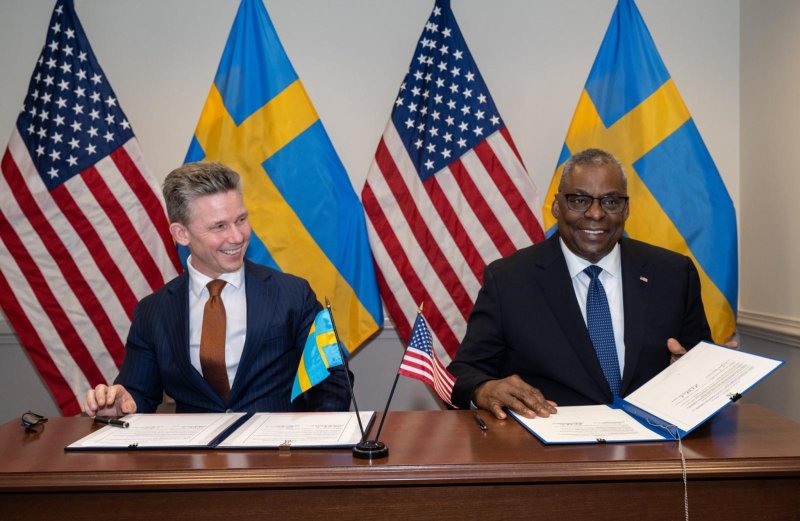Already a subscriber? Make sure to log into your account before viewing this content. You can access your account by hitting the “login” button on the top right corner. Still unable to see the content after signing in? Make sure your card on file is up-to-date.
In a move to strengthen military ties, the United States and Sweden have inked a major defense cooperation agreement, granting American troops access to Swedish bases.

This agreement, a response to Russia’s invasion of Ukraine, was signed at the Pentagon on Tuesday by US Defense Secretary Lloyd Austin and Swedish Defense Minister Pål Jonson. Jonson highlighted the importance of the agreement, stating, “The Defense cooperation agreement will be a cornerstone also in our bilateral defense cooperation and a sign of our mutual will to further develop this endeavor.”

The pact, pending approval from Sweden’s parliament, will legally authorize US forces to operate within Sweden, providing them with legal status and access to deployment areas. This development is part of a broader US strategy to enhance its military presence in Northern Europe amid growing Russian aggression.
The United States has also forged a defense agreement with Norway and is in talks for similar pacts with Finland and Denmark. “The Defense cooperation agreement will be a cornerstone also in our bilateral defense cooperation and a sign of our mutual will to further develop this endeavor,” Jonson said.

Secretary Austin emphasized the agreement as a testament to the “shared commitment to the defense relationship between our two proud democracies.”
The Russian invasion of Ukraine prompted Sweden and Finland towards NATO membership and fostering closer ties with Western allies. While Finland has already been included in NATO, Sweden is on the path to joining, following Turkey’s commitment to ratify the country’s accession. The Swedish government views the defense agreement as a crucial response to the evolving security landscape: “The deteriorating situation means that Sweden must be able to respond quickly to complex security developments.”






